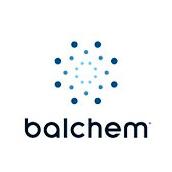Insights on Animal Welfare and Health
Published: August 7, 2020
Source : https://animalagtecheurope.com/interview-with-ciel/
The organizers of the upcoming Animal AgTech Innovation Summit spoke to Lyndsay Chapman, Chief Executive at Centre For Innovation Excellence in Livestock about improving animal welfare, maximising animal health interventions and the benefits for animals, farmers and consumers.
 In what ways can diversity of thought and technological innovation maximise welfare, productivity and profitability in animal health interventions?
In what ways can diversity of thought and technological innovation maximise welfare, productivity and profitability in animal health interventions?There are a few areas where we can maximise welfare, productivity and profitability for animal health interventions. There are interests in livestock that span many technologies and stakeholder groups including genetics, feed, health, welfare, biodiversity, waste, environment, human health and nutrition. We need common aims, resources, and capabilities to allow maximum impact across different groups and align animal and plant health sciences for common benefits.
There also needs to be real time understanding, analytics and response on an individual animal level through new data capabilities and connected data streams. We need to connect social and environmental sciences, economics, engineering, computational and mathematical approaches, satellite (including Earth observation) and meteorological resources, and technologies developed for other sectors such as surveillance and artificial intelligence.
Partnerships between industry and academic studies will provide whole system thinking, bringing strategic and economic perspective to innovative approaches and speed of implementation of ideas and technology.
How are you seeing sustainability and animal health intersect within the industry, and how does this benefit animals, farmers, consumers and anyone in between?
In every system, whether intensive or extensive, production from healthy animals per unit of impact is significantly better than unhealthy animals leading to improved efficiency and reduced environmental impact from healthy animals. Sick animals do not perform as well as healthy ones – resulting in reduced growth rates, lower milk yields, poor or variable meat quality, reduced fertility, and increased mortality. These can all impact on a business’ economic viability and, therefore, its long-term sustainability.
Research and innovations in all these areas improve the farmer's ability to use best practice to deliver profits, consumers get a more consistent, better quality of protein and everyone benefits from lower waste and lower carbon footprint.
Healthier, happier animals will be more productive and automated technology can help achieve this. In turn, this leads to lower antibiotic use and lower lifetime greenhouse gas emissions – resulting in reduced environmental impact.
Why do you think it’s important to bring the animal agriculture ecosystem together in a virtual format for this September’s Animal AgTech Innovation Summit?
It is essential to keep building the links and partnerships to understand the challenges and work collaboratively on innovative solutions. It is great to have opportunities to understand each other’s perspectives to challenge approaches and thinking, with the common goal of a more productive, resilient and sustainable ecosystem.
Source
https://animalagtecheurope.com/interview-with-ciel/Related topics
Join to be able to comment.
Once you join Engormix, you will be able to participate in all content and forums.
* Required information
Would you like to discuss another topic? Create a new post to engage with experts in the community.
Create a post



